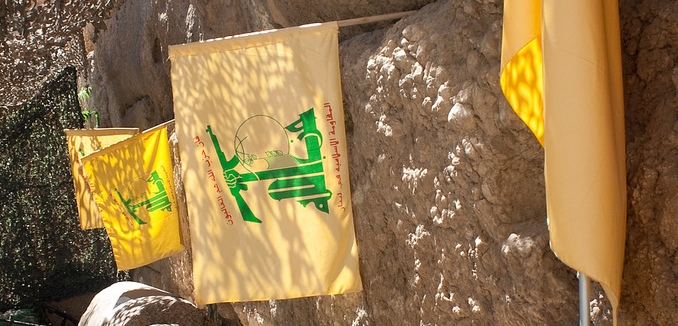The $150 billion “signing bonus” in unfrozen funds that Iran would receive in a nuclear deal will strengthen the hold that its proxy terrorist group Hezbollah has over Lebanon, Lebanese politician Ahmad el-Assaad wrote Monday in an op-ed (Google link) for The Wall Street Journal.
El-Assaad noted that Iran is stretched thin due to its support of the Assad regime in Syria and allied groups such as Hezbollah in Lebanon. But the windfall from the emerging deal would boost the fortunes of Hezbollah, which has little to offer Lebanon other than money to recruit poor youth as fighters.
Now the Obama administration is negotiating a flawed nuclear deal with the Iranian regime that will see Tehran get a windfall of up to $150 billion. With so much cash on hand, Tehran would surely create new Hezbollah franchises elsewhere in the Middle East and order all these radical proxy groups to wage even more wars in the region.
At the very least, Tehran would be eager to give a good boost to its pride and joy—Hezbollah—and help it buy its way out of the problems it is facing in Lebanon now. …
With this deal, my Lebanon won’t be able to free itself in the foreseeable future from the control of Hezbollah. It will never again be the Switzerland of the Middle East, will never prosper and thrive again like it did in the 1960s and early ’70s. To those who say that this nuclear deal is a recipe for peace, I say that this deal is an invitation for more wars in the Middle East.
El-Assaad observed that Hezbollah has been so successful that it has spawned imitation proxies all over the Middle East with Iranian support, including in Gaza, Iraq, Syria, and Yemen.
El-Assaad wrote that when he pleaded with the administration to do so something about Hezbollah, the response he received was “Let’s get a deal now on the nuclear issue and then we’ll work out a plan on how to stand up to this Iranian invasion of the Middle East.” Three weeks ago, the Journal reported that the State Department had cut funding to a moderate Lebanese group opposed to Hezbollah.
El Assaad’s fears that the nuclear deal will not stop Iran from seeking regional hegemony have been expressed by other experts.
[Photo: Giorgio Montersino / Flickr ]




